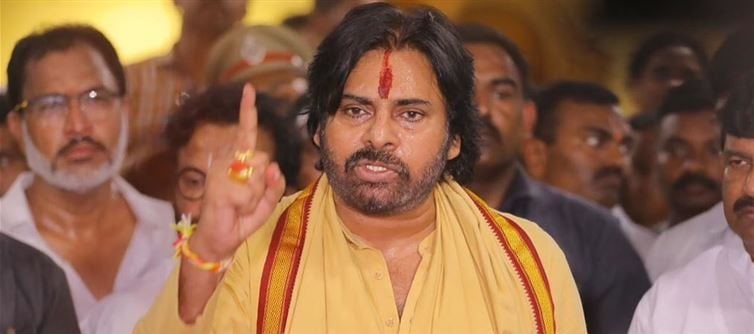
💥The Price of a Life — ₹2 Lakh and a Thank You Note
A bus catches fire in Kurnool.
Lives are lost. Families shattered.
And before the ashes even cool, comes the announcement:
₹2 lakh for the dead, ₹50,000 for the injured.
The Prime Minister’s office calls it ex-gratia. The deputy chief minister calls it generosity.
And the nation? Left wondering whether this is relief or PR.
Because what followed next was not condolence — it was sycophancy on steroids.
🙏 1. “Gratitude for Expressing Grief” — The New National Standard
Andhra Pradesh deputy cm Pawan Kalyan posted on X,
“I extend my sincere gratitude to Hon’ble prime minister Modi Ji for expressing grief and announcing ex-gratia.”
Read that again.
Gratitude for expressing grief.
Since when did feeling sorry become a favor?
When did condolence turn into an act of generosity that deserves applause?
It’s not leadership. It’s bootlicking rebranded as diplomacy.
🪙 2. ₹2 Lakh for Death, ₹50,000 for Survival — Is That All We’re Worth?
Every time tragedy strikes, we hear the same robotic announcement:
₹2 lakh for the dead, ₹50,000 for the injured.
No reform. No accountability. No preventive measure.
Just a price tag on pain and a tweet of “grief.”
In a country where billions are spent on event stages, jets, and PR campaigns, victims get less than the cost of a minister’s watch — and leaders expect gratitude in return.
🏛️ 3. Sympathy Is Not Leadership
Let’s be clear: condolences are not governance.
They are the bare minimum expected from a public servant.
A leader’s duty is to ensure such tragedies don’t happen again, not to tweet after they do.
When sympathy becomes the metric of compassion, accountability dies quietly in the background.
🧎♂️ 4. The Sycophancy Disease: Chronic and Spreading
Pawan Kalyan’s post isn’t an isolated slip — it’s a symptom of India’s larger political sickness:
the compulsive need to thank those in power for doing the bare minimum.
From disaster relief to condolence tweets, every act is wrapped in exaggerated reverence:
“Grateful to Modi Ji for his concern.”
“Thankful to amit shah Ji for taking note.”
This isn’t gratitude — this is institutionalized servitude.
It’s how democracies turn into personality cults.
🧨 5. When Tragedy Meets PR
The victims’ families aren’t getting justice; they’re getting hashtags.
There are no inquiries into bus safety, no accountability from transport authorities — just camera-friendly grief.
Every tragedy becomes a photo-op for power.
Every condolence becomes a press release.
And leaders like Pawan Kalyan, instead of demanding reforms, compete to prove loyalty.
💣 6. The banana Republic Syndrome
“Even by our very high banana republic standards, this is a new banana republic high.”
That one netizen nailed it.
Because in no self-respecting democracy would a minister publicly thank a leader for feeling sad.
We’ve reached a point where the system glorifies emotion and ignores execution.
The value of a citizen’s life has been reduced to a cheque and a caption.
⚖️ 7. Leadership Isn’t About Sympathy, It’s About Systems
Real leadership means:
Ensuring buses are inspected regularly.
Making sure roads are safe.
Providing families with legal and financial support beyond token amounts.
Holding someone accountable.
Instead, we get ritual condolence and performative gratitude.
This isn’t compassion — it’s crisis management for headlines.
🔚 FINAL WORD: Stop Thanking Leaders for Doing Their Job
The Deputy CM’s post is not just tone-deaf — it’s an insult to the victims.
No one should have to thank the prime minister for showing basic human emotion.
Because when “expressing grief” becomes an act worthy of praise, it means we’ve stopped expecting real action.
The victims of kurnool deserve justice, not pity.
They deserve reform, not rituals.
And they deserve leaders who lead — not those who bend to please.
So no, Mr. Kalyan — you don’t thank someone for “expressing grief.”
You thank them when they make sure it never happens again.




 click and follow Indiaherald WhatsApp channel
click and follow Indiaherald WhatsApp channel